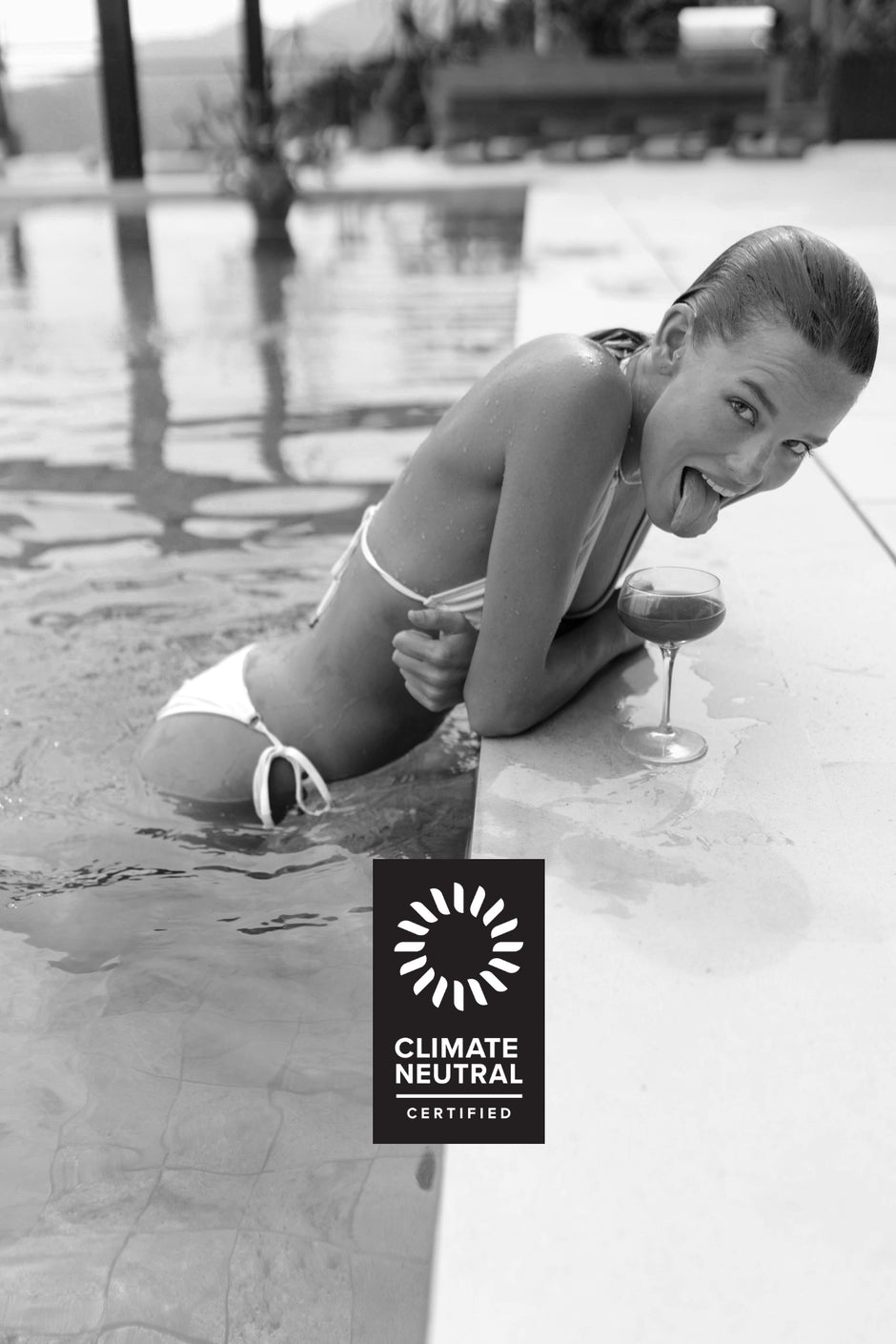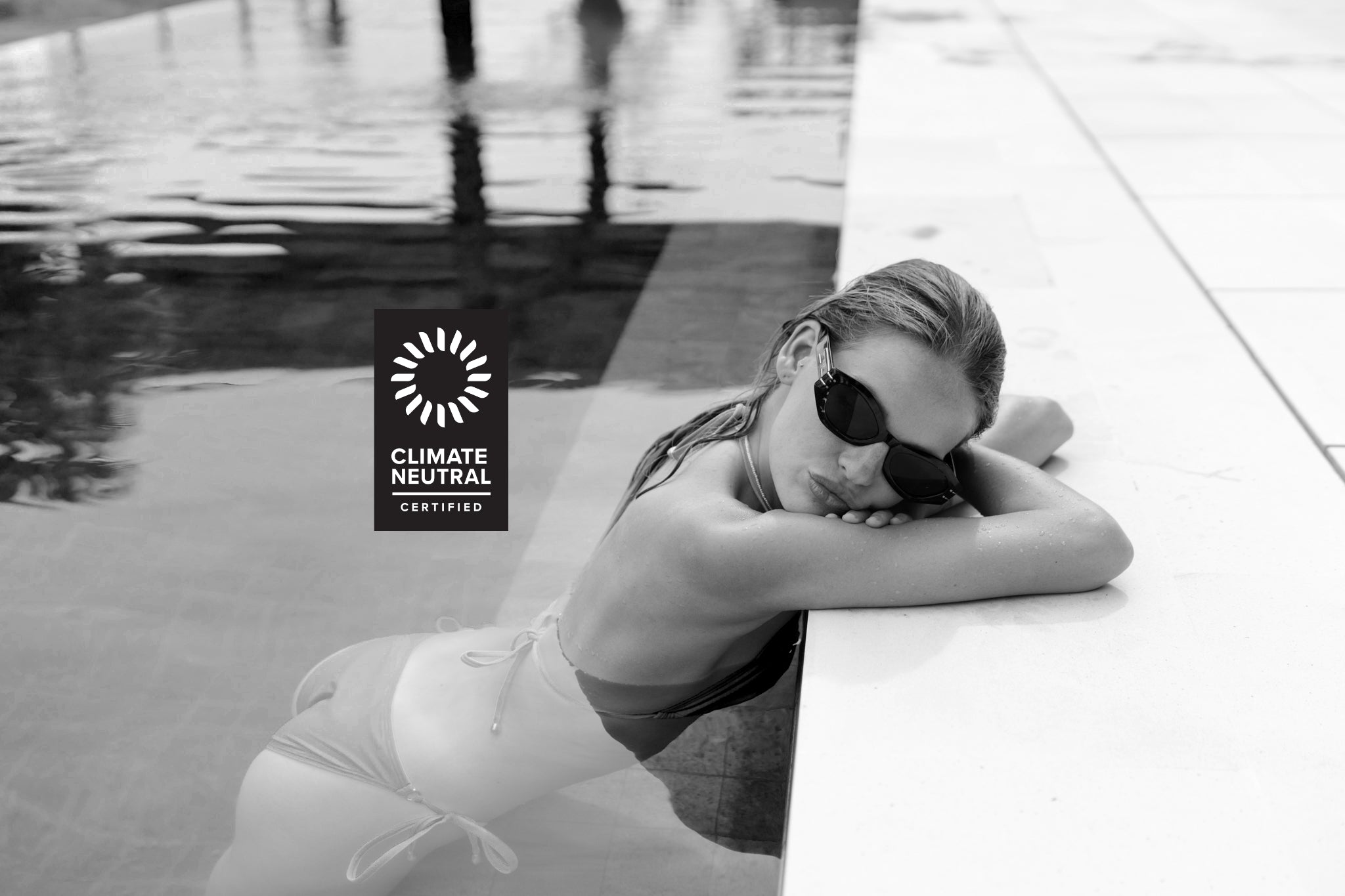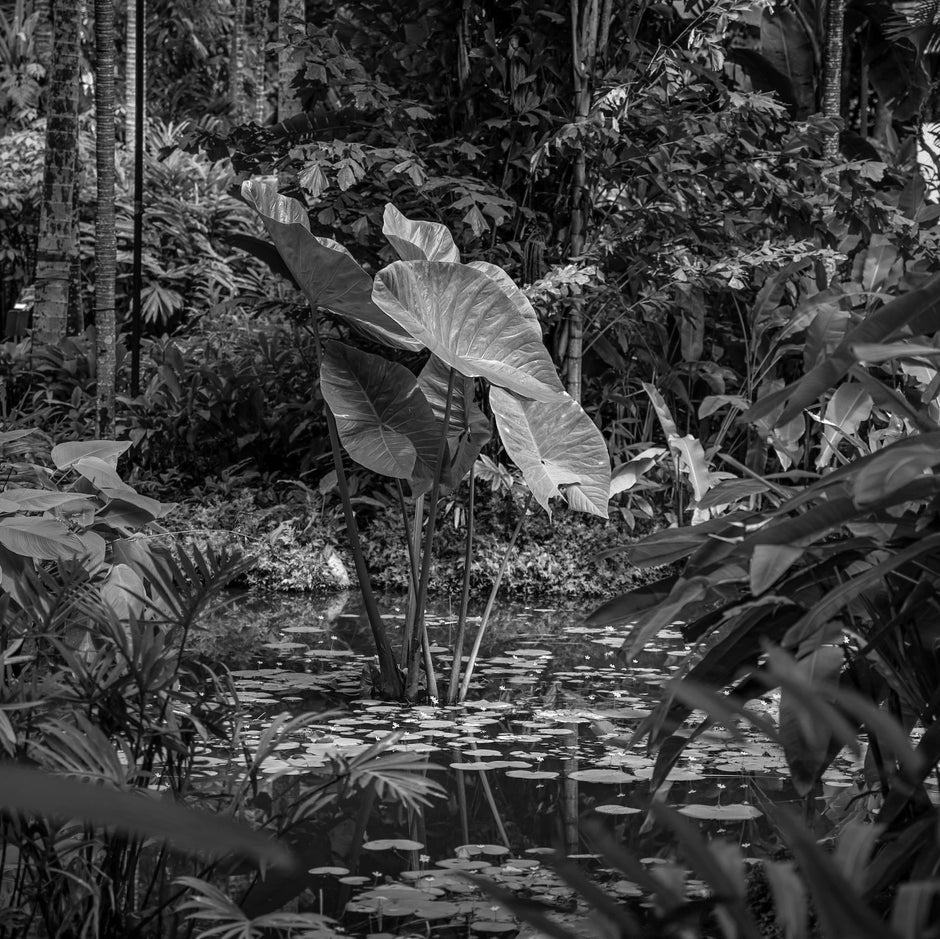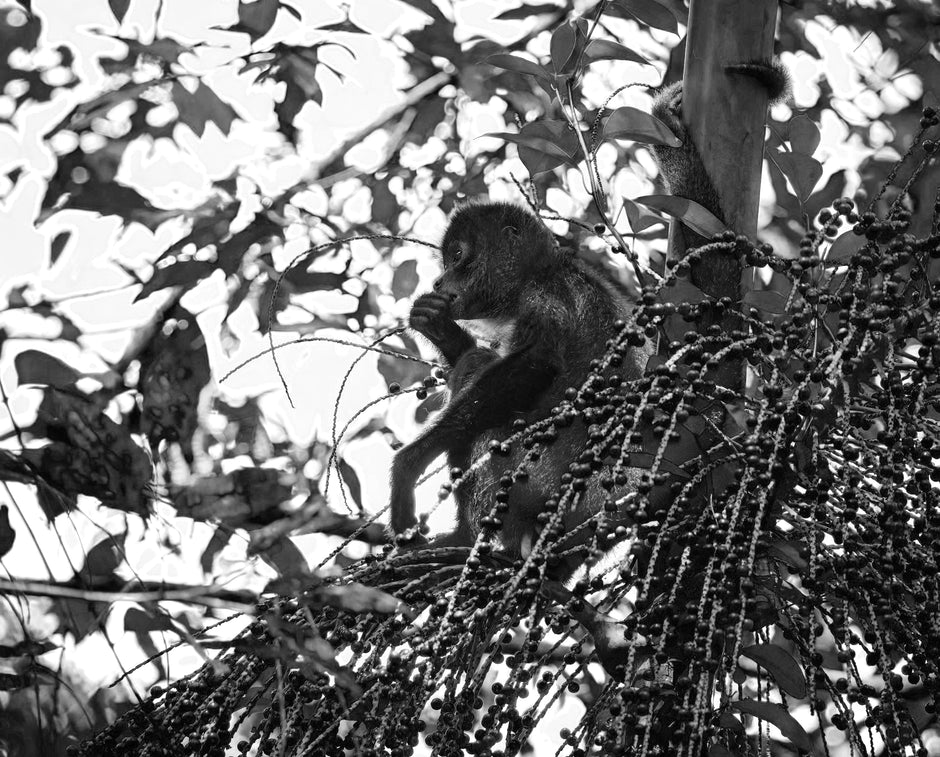
CLIMATE NEUTRAL CERTIFIED
At KŌRARU, we're committed to more than just creating stunning swimwear; we're dedicated to preserving the natural beauty of our planet. That's why we're thrilled to announce that KŌRARU is now Climate Neutral Certified.
What Does This Mean?
Being Climate Neutral Certified means that we have taken concrete steps to measure, reduce, and offset our carbon emissions, aligning with our mission to create a more sustainable and eco-conscious future for fashion.
Offsetting Carbon Emissions with Rio Anapu Project
One of the ways we're offsetting our carbon emissions is through our support of the Rio Anapu Project. This project is a powerful initiative that not only helps combat climate change but also contributes to the protection of the Amazon rainforest.
Why the Rio Anapu Project?
We've chosen to partner with the Rio Anapu Project because of its significant environmental impact. This initiative focuses on reforestation, sustainable land management, and community development in the Amazon, directly addressing the urgent need to protect this vital ecosystem.
By contributing to the Rio Anapu Project, we are not only offsetting our carbon emissions but also supporting local communities and preserving the rich biodiversity of the Amazon rainforest.
Our Commitment to a Greener Future
KŌRARU believes that fashion can coexist harmoniously with nature, and our Climate Neutral Certification is a testament to that commitment. We're proud to take these steps towards a greener, more sustainable future.
We invite you to join us on this journey. By choosing KŌRARU, you're not just choosing stylish swimwear; you're choosing a brand that cares deeply about the environment and is actively working to make a positive impact.
Thank you for being a part of our mission to create a more climate-neutral, eco-conscious world. Together, we can make a difference.
Learn more about our Climate Neutral Certification: https://www.climateneutral.org/brand/koraru
All our deliveries are offset as well. Read more about it here.

The Process
Measure
We measured our Scope 1, 2, and 3 cradle-to-consumer greenhouse gas (GHG) emissions, which includes all emissions from making and delivering our sustainable swimsuits.
Our total 2022 emissions footprint:
180 t CO2
Reduce
We have committed to reduction targets and specific action plans to reduce operational and value chain emissions within the next 12-24 months. Actions include:
sourcing raw materials closer to manufacturing to reduce miles traveled by 30% across all textile sourcing; [ in progress ]
a reduction of our packaging by 33.3% by opting out of our organic tote bag and origami paper carrier. [ in progress ]
Compensate
We are investing outside of our value chain in high quality, verified projects that meet the Climate Neutral Standard.These projects accelerate climate progress and compensate for KORARU's current GHG emissions as its reduction actions are implemented.
We're supporting the Rio Anapu-Pacaja Forest Protection that satisfies 10 of the UN's Sustainable Development Goals — details below.

RIO ANAPU-PACAJA PROJECT
THE CHALLENGE
The Amazon rainforest, recognised as one of the planet’s most important ecosystems and home to 10% of Earth's species and over 47 million people (including 2 million Indigenous people), is rapidly shrinking. An area the size of Qatar was cleared between 2021 and 2022, threatening the planet's largest tropical rainforest.
THE SOLUTION
The Rio Anapu-Pacaja Forest Protection project in Brazil's Para state aims to conserve 165,707 hectares of the Brazilian Amazon. Around 50% of the population in this region are rural communities, who have historically relied on subsistence agriculture and wood extraction to survive. But unplanned timber logging and grazing activities, along with high levels of land grabbing and land conflict is putting increasing pressure on native forest dwellers. With the aim to strengthen local governance and put an end to illegal logging in the region, the project supports local communities by securing land rights and promoting sustainable practices and improving local socioeconomic development by providing training in new income streams, such as beekeeping.
THE IMPACT
127 families have obtained land tenure, protecting the rainforest and reducing deforestation emissions. This initiative preserves the rainforest in the Brazilian Amazon, which in turn effectively reduces climate-warming emissions associated with deforestation, safeguards cultural heritage and biodiversity, and protects the livelihoods of Amazonian communities.
[image is for reference purposes only]

SUSTAINABLE DEVELOPMENT GOALS
SDGs SUPPORTED
GOAL 1 - No Poverty: "End poverty in all its forms everywhere." - If current trends continue, by 2030, 575 million people will still be living in extreme poverty.
GOAL 2 - Zero Hunger: "End hunger, achieve food security and improved nutrition and promote sustainable agriculture." - More than 600 million people are projected to face hunger in 2030.
GOAL 3 - Good Health and Wellbeing: "Ensure healthy lives and promote well-being for all at all ages." - Notable strides have been made towards improving global health outcomes, but life expectancy as well as child and maternal mortality are still important indicators that need to be focused on.
GOAL 4 - Quality Education: "Ensure inclusive and equitable quality education and promote lifelong learning opportunities for all." - According to the UN, additional steps must be taken to ensure 84 million children and youth remain in school and 300 million gain basic numeracy/literacy skills by 2030.
GOAL 6 - Clean Water and Sanitation: "Ensure availability and sustainable management of water and sanitation for all." - Safe drinking water, sanitation and hygene are still out of reach for billions of people and 81% of species dependent on inland welands have declined since 1970.
GOAL 7 - Affordable and clean energy: "Ensure access to affordable, reliable, sustainable and modern energy for all." - The energy efficiency improvement must more than double its pace by 2030, as 675 million people still live in the dark.
GOAL 8 - Decent work and economic growth: "Promote sustained, inclusive and sustainable economic growth, full and productive employment and decent work for all." - 2 billion workers are in precarious informal jobs, without social protection and 1 in 4 young people are not in education, employment and training, with young women more than twice as likely to be in this situation.
GOAL 13 - Climate action: "Take urgent action to combat climate change and its impacts." - The world will exceed 1.5° C by 2035 and faces a 2.5° C warming by 2100. We need a deep, rapid and sustained GHG emission reduction by 43% by 2030 and net zero by 2050.
GOAL 15 - Life on Land: "Protect, restore and promote sustainable use of terrestrial ecosystems, sustainably manage forests, combat desertification, and halt and reverse land degradation and halt biodiversity loss." - 100 million hectares of healthy and productive land was degraded every year since 2015-2019. Escalating forrest loss, land degradation and species extinction pose severe threats to people and planet.
GOAL 15 - Life on Land: "Protect, restore and promote sustainable use of terrestrial ecosystems, sustainably manage forests, combat desertification, and halt and reverse land degradation and halt biodiversity loss." - 100 million hectares of healthy and productive land was degraded every year since 2015-2019. Escalating forrest loss, land degradation and species extinction pose severe threats to people and planet.
GOAL 16 - Peace, Justice and Strong Institutions: "Promote peaceful and inclusive societies for sustainable development, provide access to justice for all and build effective, accountable and inclusive institutions at all levels." - 108.4 million people have been forcibly displaced worldwide as of 2022.






